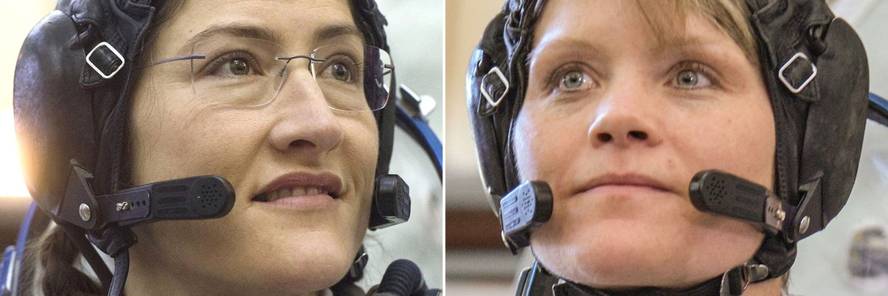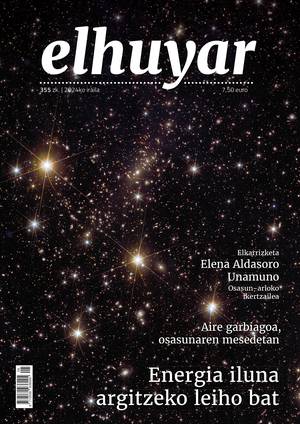Menstruation: in heaven as on earth
Text created by automatic translator Elia and has not been subsequently revised by translators. Elia Elhuyar

Astronauts Christina Koch and Anne McClain will go out into open space. It will be the first women's team. Ed. ANDÉN
Next Friday 29, for the first time in history, two women will go into open space without the help of a man. Two women alone. Both are NASA astronauts and will leave the International Space Station (ISS) to replace some batteries placed last summer. Their names: Christina Koch and Anne McClain.
It seems that gender equality is moving very slowly in space, as it has been 35 years since a woman made a space excursion. This pioneer was the cosmonaut Svetlana Savitskaia, who worked for almost four hours in space, outside the Saliut-7 station, in repairing the structure. The other five crew members were men and those responsible for the mission recognized that these tasks were carried out as well as they.
The journalists, in addition to extolling the work done by Savitskaia, wrote about her body. In fact, at that time there was widespread belief that lack of gravity would be detrimental to the female body. Therefore, many stressed that Savitskaia successfully surpassed this mission, despite losing a few kilos.
It was not what worried the kilos, but what was the rule. Because of weightlessness, blood would not be expelled, and I know what harm it could cause within the body! This unfounded concern was a major obstacle in the space missions of women's admission and, subsequently, although it has been shown that it does not affect health, the ghost resents once again.
For example, in 2016, researchers from Houston and London (men) published an article on the spatial rule in the journal Microgravity. Researchers recommended using birth control hormones to prevent menstruation while remaining in space. That also had but one for those men: For example, going to Mars takes a lot of time and those thousands of pills that would be needed would take up a lot of space.
However, experts recognize that space facilities are not prepared for proper treatment of menstrual waste. It seems that engineers who design the facility do not have menstruations nor do they consider that other people may have them.
But you don't have to go so far to find such distinctions. Women who research in their own land, in remote and lonely places have often denounced that infrastructure is quite scarce from a hygienic point of view. However, we cannot ask for great advances anywhere else, here to leave us a tampon or a compress, or to change yours, while we are hidden. We have nothing to hide.





